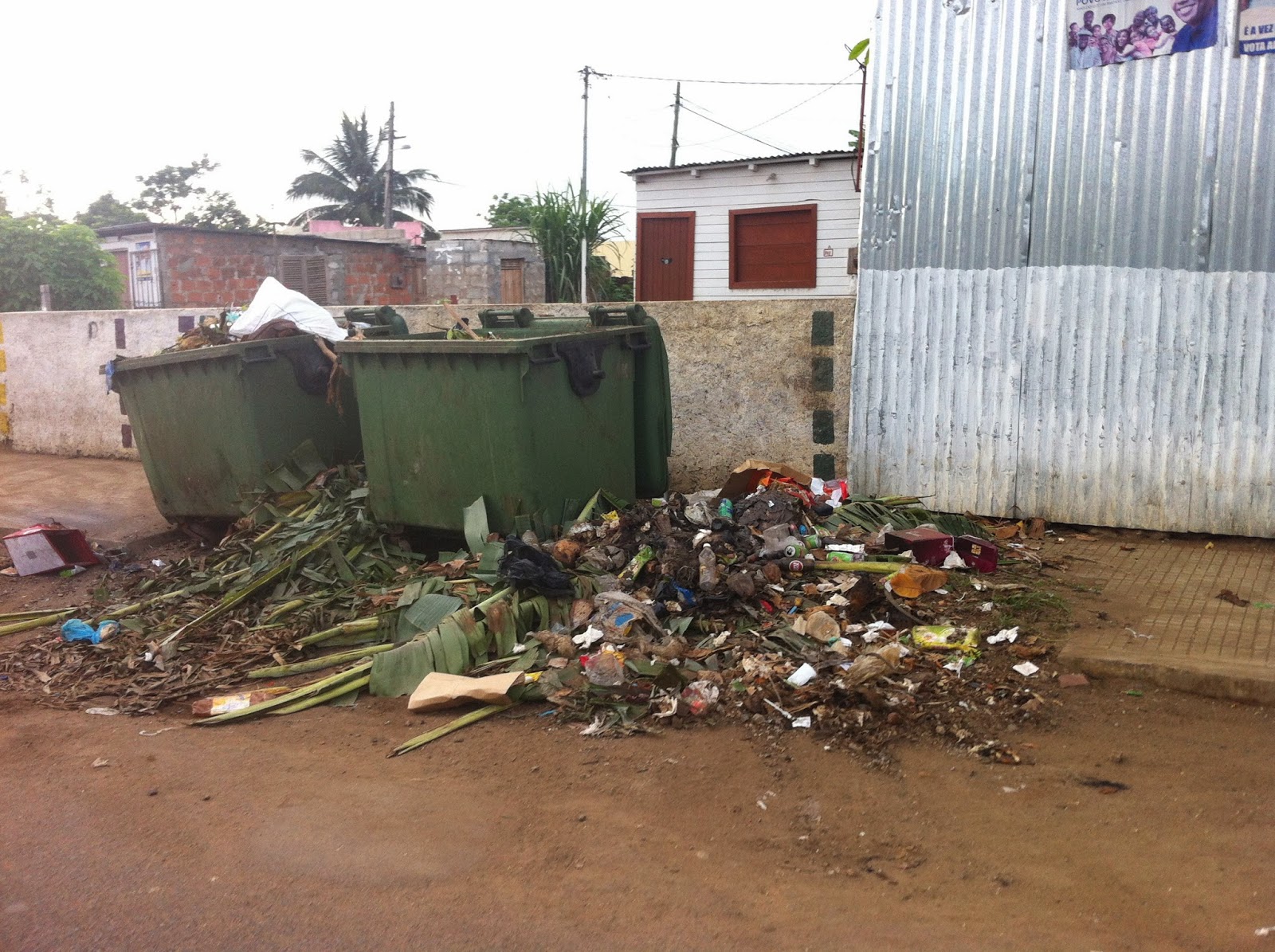Guine Equatorial
Estas eleicoes so nos fazem lembrar as eleicoes do Iraque, ha uns anos atras.
Que grande amor o povo tem pelo Presidente para 95% votarem nele.
Da que pensar!
Telanon:
Que grande amor o povo tem pelo Presidente para 95% votarem nele.
Da que pensar!
Telanon:
The Economist
Equatorial Guinea's election: Oh we love you so Dec 3rd 2009From The Economist print edition
Even a shamelessly rigged election may serve a purpose
IT IS hard to know why Equatorial Guinea goes to the bother of holding elections. At the last parliamentary one, in 2008, President Obiang Nguema’s ruling party scooped up 99 of the supine legislature’s 100 seats. Before the presidential poll on November 29th, Mr Nguema predicted he would get 97.1% of the vote; the day after, even with only a fraction of votes counted, the government was claiming he had won 96.7%. That figure may rise when the result is officially declared around December 7th, in which case he will have improved on the result in 2002, when he won the rapturous support of only 97% of voters. Known as “Father Behind the Gates”, he is into his fourth decade in office and is likely to stay there for a long time yet.
Nobody believes the official view that his oil-rich speck of a country of 500,000-plus people in west Africa is a democracy. Human-rights groups and the United Nations frequently describe the routine torture of prisoners and blanket restrictions on free speech. Last week soldiers stood beside polling stations snarling at civilians. Foreign journalists were refused visas to cover the event. Just about the only hint of progress is that the opposition leaders who called the poll a farce are unlikely to be jailed as a result. Opposition candidates have previously paid for such frankness with their lives.
Yet there may be some method in Mr Nguema’s blatant malfeasance. Any elections, even sham ones, offer a figleaf of respectability that can be worn at international gatherings such as those of the African Union. And they may help warm relations with countries farther afield.
Equatorial Guinea, which consists of a main island that hosts the capital, Malabo, and a largely forested mainland part, is run as a family fief and is known to outsiders, if it is noticed at all, for its breathtaking corruption. It is sub-Saharan Africa’s fourth-largest producer of crude oil but much of its revenue is spectacularly squandered. The president is building a new capital, known as Malabo 2, next to the present one. He is said to have spent several tens of millions of dollars on six private planes, including a jumbo jet complete with a gold-plated bathroom. His playboy son, Teodorin, has a house in California that is reported to have cost $35m. Yet most of the country’s people live in dire poverty.
Ever since a British mercenary, Simon Mann, bungled an attempt to topple Mr Nguema in a coup in 2004—an effort tacitly backed by several Western powers—the country has been trying to rebrand itself as an emerging democracy while cosying up to old critics. In November the president pardoned and freed Mr Mann and four South African co-plotters; the Briton had served only a year and a bit of his 34-year sentence. Lobbyists in Washington, DC, are being paid to talk up the country, dubbing it the “Costa Rica of Africa”.
Such public-relations efforts have reaped results. Once diplomatically isolated, Equatorial Guinea now enjoys ministerial visits from Spain, the former colonial power. The United States has become a lot more polite. Teodorin, who may succeed his father, was recently granted an American visa. And his father pulled off his biggest diplomatic coup to date in November, when South Africa’s president, Jacob Zuma, honoured him with a state visit.
Equatorial Guinea, which consists of a main island that hosts the capital, Malabo, and a largely forested mainland part, is run as a family fief and is known to outsiders, if it is noticed at all, for its breathtaking corruption. It is sub-Saharan Africa’s fourth-largest producer of crude oil but much of its revenue is spectacularly squandered. The president is building a new capital, known as Malabo 2, next to the present one. He is said to have spent several tens of millions of dollars on six private planes, including a jumbo jet complete with a gold-plated bathroom. His playboy son, Teodorin, has a house in California that is reported to have cost $35m. Yet most of the country’s people live in dire poverty.
Ever since a British mercenary, Simon Mann, bungled an attempt to topple Mr Nguema in a coup in 2004—an effort tacitly backed by several Western powers—the country has been trying to rebrand itself as an emerging democracy while cosying up to old critics. In November the president pardoned and freed Mr Mann and four South African co-plotters; the Briton had served only a year and a bit of his 34-year sentence. Lobbyists in Washington, DC, are being paid to talk up the country, dubbing it the “Costa Rica of Africa”.
Such public-relations efforts have reaped results. Once diplomatically isolated, Equatorial Guinea now enjoys ministerial visits from Spain, the former colonial power. The United States has become a lot more polite. Teodorin, who may succeed his father, was recently granted an American visa. And his father pulled off his biggest diplomatic coup to date in November, when South Africa’s president, Jacob Zuma, honoured him with a state visit.

Comentários
Enviar um comentário